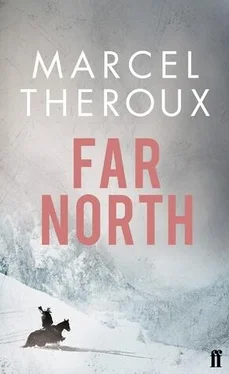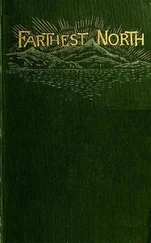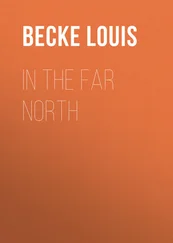‘There are two forbidden trees in the garden: the Tree of Life, and the Tree of Knowledge of Good and Evil. God doesn’t want Adam and Eve to eat from both, otherwise they’ll become gods, so he bars their way and sends them into exile.
‘The government decided the same thing. Knowledge and power can make you a god. There are things in Polyn that used rightly will make you almost a god. So over the city, they put a flaming sword.’
When he said its name, some of the prisoners crossed themselves. You would never have known there was such a deep seam of belief in these men from the way they carried themselves in the camp. They’d squirrelled god away inside them, like men who bury food in a famine and hold up empty hands to their starving neighbours.
The word stuck in my mind for being so strange and pretty. Anthrax . I had never heard it before, and it sounded to me like an ancient god, one the Tungus might worship, or maybe a famous old asiatic city with minarets and a mosaic arch.
But there was nothing pretty about what it did to you. Tolya told us how the spores of it slept in the rubble, stubborn and long-lived. It killed people, but it also killed what they lived on. It opened sores across your body and ate into your lungs. It was a living thing too, just a lot simpler than we are, and with its own implacable appetite for life. You wonder on what day a loving god created that.
Tolya said it was thanks to Apofagato that we knew these things. Apofagato was a scientist himself and he came from a family who had lived in Polyn. He understood the layout of the city, and that’s why Boathwaite had brought him to the base. With the instructions they’d been given, the prisoners were right now unearthing what we needed to restore more comfort and safety to our lives.
The men wanted to drink to that, but this is when Tolya grew grave and came to the point of his sermon. Though we needed what he hoped the prisoners had found, we couldn’t afford to let them out of the Zone alive. He didn’t like it any more than they did, but that’s how it was. The place was poisoned and the poison had to stay locked up.
The guards had listened intently as he talked, and when he stopped they broke out with questions. They wanted to know about the poison in the Zone, and the objects we were taking out, and how you could be sure that what came out of the Zone could be made clean.
Tolya answered their questions and he puffed up those men with the notion they were doing good, embroidering their task with a lot of long words like dedication and sacrifice that reminded me of those odd telegrams from the Almighty that would burst into our silent worship at home.
I don’t trust those words or the people that use them. Maybe I’m simple, but they ring in my ears with the same dull thud you get when a stone bangs against an empty coffee can.
The world has shrunk to simple facts, and the simpler the people the better they cope. My father spoke six languages but he couldn’t hammer a nail straight. He could speak with presidents and governments, when there were such things, on matters of law. He was one of those who negotiated the grant of land that became our home. He had yards and yards of words to dress up his vision of what our life should be, but he couldn’t so much as make a fist when the time came to defend it. He spoke constantly of bringing good to the world, but I don’t think the good he brought would cover a penny piece. It takes no words to do good.
What Tolya said reminded me a lot of how my father talked. Where my father saw the handiwork of god, all I ever saw was sunlight on ice, or two blue eggs in a nest. And where Tolya said he saw holy men preserving the lost jewels of human knowledge, all I saw was a team of burglars getting ready to shoot their accomplices.
*
The drink I’d had gave me a thirst that shook me out of my sleep some time after midnight. The moon was as big and pale as a duck egg and it dazzled me as I stumbled after my water bottle. The water was frozen hard in it, so I had to slake my thirst with a handful of snow. I looked at the sleeping forms in the darkness and decided that this was where we would part company. You can build your new world without me , I thought. I would try to get back to my lake cabin before August. I would get myself a hunting dog. I would pick cloudberries and plant broad beans. There’s so many things worse than a solitary life.
I shook the Tungus boy awake. He woke silently, like a good backwoodsman does, and I gave him the jagged lid of one of the meat cans to saw through his bonds with.
Osip’s carbine was next to him. I took it and changed it for mine. My gun was a rusty old thing that I didn’t want to trustlife to. He murmured a little at the noise, but he was pretty far gone in drink.
By the time I made the swap, the boy had sliced the lariat into pieces. I handed him the reins of my horse and pointed him the way we’d come. If he was smart, he’d keep to the trodden path and his trail would be invisible.
He swung up into the saddle and left without giving me a backward glance.
I slipped the spyglass into my jacket, then gathered my things quickly and untethered Tolya’s horse, which was the fastest.
A ringing sound came up the concrete banks of the river. I’d hoped the boy would have the sense to stay in the deeper snow to muffle the clang of the hooves, but eagerness had got the better of him.
The noise didn’t wake anyone yet, but it made the horse skittish and she wouldn’t let me mount her. I tried to wrangle her around the right way in the darkness, beseeching her inwardly to be silent. She startled this time and let out a whinny, and there were a couple of groans as sore heads came to.
By the time I was in the saddle, I no longer had the jump on them. I could hear Tolya fumbling for his weapon. I didn’t think through what I did next. It was like the splitsecond before the draw when all your hours of practice take over, and the gun’s out and smoking before your mind’s caught up to it. If reasoning played a part in it, I suppose it must have told me that I could take my chances and try to outrun them on a trail they knew better than I did, or I could make for somewhere they wouldn’t want to follow.
I urged the horse up towards the block post, past the rolls of rusty wire, and I kicked her flanks, and she pinned her ears back and we made straight for the Zone.
The moon was bright enough for them to have a clear shot at me, so I lay as flat as I could to her neck.
I didn’t bring her up at the kiosk. I clamped my knees tight and we galloped on down that wide empty street, flat out for a couple of hundred yards. The space between her footfalls seemed to stretch out until we were airborne, hurtling through the arctic darkness like a thing in flight, over the rubble under the snow, the discarded furniture, tramlines, anthrax, god knows what else. The city expanded in front of us: the streets multiplied, the houses fanned out like trees in a forest, enfolding, embracing, hiding us — this dirty, dead, poisoned old city. And for the first time in so many years, I knew what it was to be free.
AT DAYBREAK, I found myself in the main square of Polyn, where I came upon a huge bronze head glaring out over a vast field of snow.
The man was a bald, bearded fellow with an asiatic squint and the snow was banked up to his jowls like a starched collar. He’d only been cast from the chin up, but he still stood more than fifteen feet high. I rode round him twice, leaving a wheel of prints.
If that was his tomb, I owe him an apology, because the next thing I did was to shinny up his nose and sit my ass right on his big bare dome to watch the sun come up over the city. v height="0em">
Читать дальше












